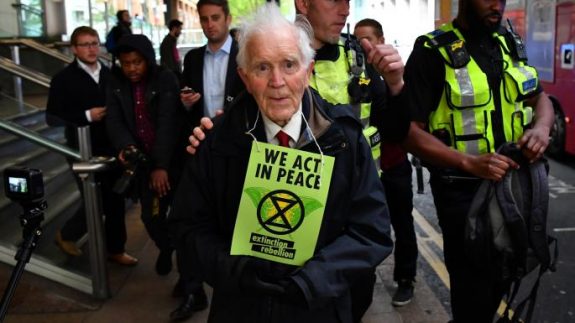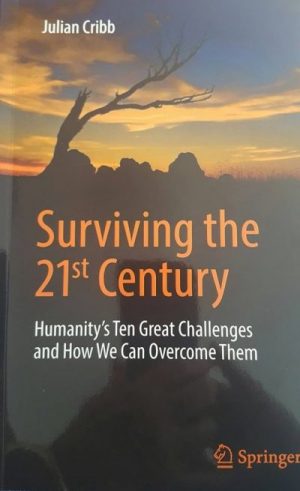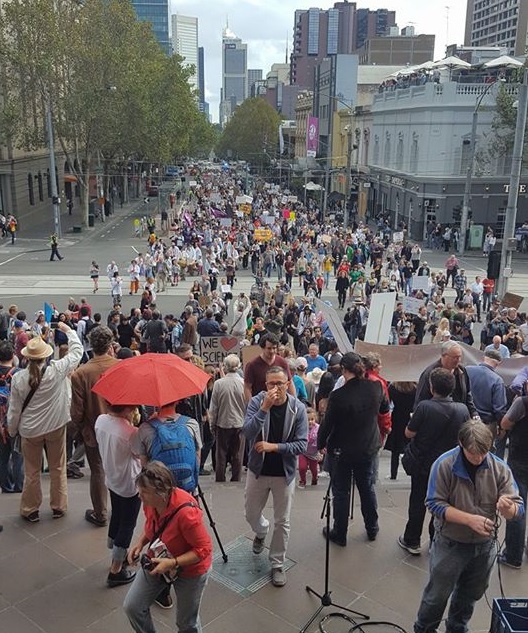Celebrity Protesters and Extinction Rebellion

Benedict Cumberbatch. Olivia Colman. Fine actors. They believe in Extinction Rebellion, or perhaps, rebelling against the prospect of extinction. The environment thing, humanity as a damnably scandalous, ecologically damaging species. But they also believe in taking sponsorship from the very same entities who are doing their best (or worst) to engage in matters of existential oblivion. So the circle of contradiction, even hypocrisy, is complete.
The matter has come to the fore over overt expressions of support for XR’s two-week effort of disruption in London by the entertainment set. Severable notable sites have received the attention of the climate change protest group. The Treasury building has been sprayed with fake blood. The London Underground train system has been disrupted. Protestors have glued themselves to trains, to floors and even mounted trains. Roads to Westminster were blocked, sit-ins staged at City Airport. Over 1,700 arrests have been made.
Phil Kingston was one such figure, not exactly a rabble rouser or hardened rioter. The 83-year-old glued his hand to the side of a carriage at Shadwell and was concerned for his grandchildren. “I’m also very concerned about what’s happening in the poorer parts of the world who are being hit hardest by climate breakdown.” Being Christian, he expressed concern about “God’s creation being wrecked across the world.” Kingston was also jointed by a rather eclectic sampling: a vicar, an ex-Buddhist instructor, and a former GP.
The incident, which involved aggressive scuffling between commuters and the protesters, was acknowledged in a statement from the movement as something divisive. “In light of today’s events, Extinction Rebellion will be looking at ways to bring people together rather than create an unnecessary division.” Others were keen to pick holes in the rationale of the protest: Why, for instance, get at an electric train? Within XR, things are far from uniform.
Such protestors were a rather humble lot, but it did not take long for the bigger fish to join the shoal. Cumberbatch added his voice of support, his grin flashing as it was snapped by cameras in front of the Extinction Rebellion hearse blocking traffic to Trafalgar Square. Behind him were the conspicuous words hovering with spectral, foreboding promise: “Our future.”
The criticism of this was not far behind. Cumberbatch is the very conspicuous “brand ambassador” for MG in India. (Previously, Jaguar counted him among their celebrity proponents). The MG GS sports a particularly thirsty engine, and the actor is featured in an advertisement doing rounds in one on, of all places, Trafalgar Square. MG India’s Hector SUV has also boasted Cumberbatch’s smooth persona.
Academy award winner Colman has also found herself at odd between protest and brand. Having openly expressed her support for the movement, questions were asked by some of the more barbed wings of the British press whether there might be a clash between being on a British Airways inflight video, and disrupting flights.
Over the summer, Oscar winning actress Dame Emma Thompson was also ribbed for flying from Los Angeles to London to participate in an Extinction Rebellion protest. Her explanation to BBC Radio 4 was that the objects of her job, and being a protester, might not always converge. “It’s very difficult to do my job without occasionally flying, although I do fly a lot less than I did.”
Those bastions of supposed establishment wisdom, such as The Spectator, were chortling and derisive. Toby Young was keen to highlight how purchasing vegan baguettes at Pret a Manger was inconsistent with anti-capitalist protest. He also expressed, at least initially, concern at how law enforcement authorities had, generally speaking, been models of restraint before XR enthusiasts. Had there been “a group of Catholic nuns protesting about changes to the Gender Recognition Act, the riot squad would have been straight with the tear gas.” For Young, it was good to laugh at these modern millenarians infused with the spirit of apocalyptic terror.
The issue of celebrity encrustation, however, was bound to come by and find voice. And the engine room of entertainment turns the moral message, however hypocritical, into entertainment. Bite the hand that feeds you and call it a show. Having anticipated the rage, the celebrity big wigs have turned vice into a virtue. An open letter with a hundred names or so, from Sir Bob Geldof to Sienna Miller, took to the barricades and distribution channels with an open letter of affected contrition. “Dear journalists who have called us hypocrites. You’re right. We live high carbon lives and the industries that we are part of have huge carbon footprints.”
What matters is the broad church of hypocrisy. “Like you – and everyone else – we are stuck in this fossil-fuel economy and without systemic change, our lifestyles will keep on causing climate and ecological harm.”
Those behind the letter stressed the speed of change as their concern. “Climate change is happening faster and more furiously than was predicted. Millions of people are suffering, leaving their homes and arriving on our border as refugees.” Children, through the voice of Greta Thunberg, had also called upon “the people with power and influence, to stand up and fight for their already devasted future.” (Rather cocksure are these celebrities, they, who wield such, as yet unmeasured influence).
Unlike those critical journalists, the signatories cannot help but be just a touch smug. There was “a more urgent story that our profiles and platforms can draw attention to. Life on earth is dying. We are living in the midst of the 6th mass extinction.”
Much, and in some cases too much, can be made about the celebrity activist who undercuts the argument. “None of us,” explained Sarah Lunnon of Extinction Rebellion, “is perfect.” The argument is still worth making, and publicity still worth having. Unfortunately for the likes of Cumberbatch, the gravity of such messages can be obscured by the person as label. In revolution, becoming a label is not only counterproductive but deadly. Protestors like Kingston can just hold their head that much higher.
Like what we do at The AIMN?
You’ll like it even more knowing that your donation will help us to keep up the good fight.
Chuck in a few bucks and see just how far it goes!
Your contribution to help with the running costs of this site will be gratefully accepted.
You can donate through PayPal or credit card via the button below, or donate via bank transfer: BSB: 062500; A/c no: 10495969











